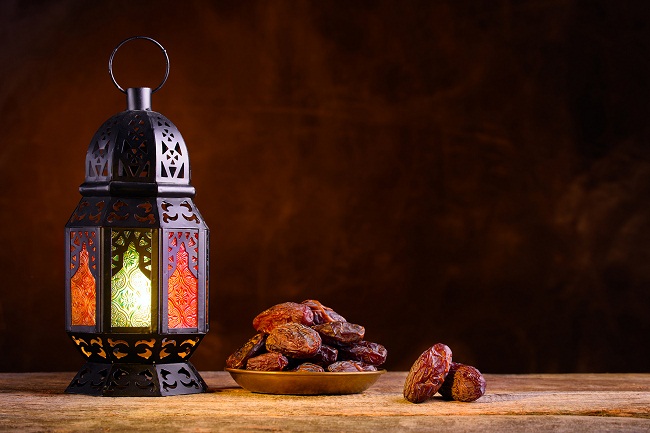The month of Ramadan has begun and for all of you who are planning to fast, it is important to discuss with your diabetologists and healthcare team, as early as possible. They will decide if you are fit to fast for a long period and whether it will be safe for you or not, because for some people with diabetes, fasting and subsequent eating can be dangerous for health.
Diabetes and Ramadan
There are several health concerns which require special consideration for those who are diabetic and willing to fast; for example – monitoring blood sugar, medication, insulin, exercise, nutrition, pregnancy and fasting, etc. People with type 1 diabetes and also those who require insulin to control their diabetes are generally advised to skip fasting, but those who have their diabetes under control, either by medication or a strict diet, may be able to fast. However, your healthcare team or diabetologist will change your medication for you to be able to take your diabetes tablets outside your fasting time.
Here’s how to control your blood sugar levels during fasting in Ramadan
- If you are fasting, it is compulsory and advisable to test your blood sugar levels more often than normal
- Being a diabetic, make sure you are aware and understand the symptoms of low and high blood sugar
- Be sure to keep your diabetes kit or glucometer ready, in case you feel you may be too high or low on sugar – keeping a glucometer handy always helps
- If you are on blood glucose-lowering medication, keep a form of quickly absorbing sugar handy
When should you not fast?
Once you check with your diabetologist and healthcare team, you will know whether or not you can fast or if it is quite dangerous for your health and condition. You are most likely advised not to fast if you fit in any of the following –
- Unstable or fragile condition with diabetes
- If you have type 1 diabetes
- If you are pregnant
- Poor glycemic control
- If you are undergoing dialysis
- Chronic complications such as macro vascular complications or kidney failure
- If you are unaware of hypoglycemia or if you have recurrent hypoglycemia
- If you have ketoacidosis or have experienced hyperosmolar hyperglycemia within 3 months before Ramadan
Basic nutrition: Understanding the foods that are good for diabetes during Ramadan
Balanced and healthy diet is recommended to everyone during Ramadan. But for those who are diabetic or prediabetic, understanding and following these quick pointers can be quite beneficial.
- Having a small meal which is rich in simple carbohydrates which can be quickly absorbed by the body such as a glass of milk or few dates is highly recommended.
- Include foods that are rich in simple carbohydrates such as vegetables and wholegrains will be beneficial.
- Complex carbohydrates take more time to absorb, ingest and digest which helps keep the body full for longer hour’s throught the fast day.
- Avoid consuming heavy and large amounts of meals that are high in carbohydrates and high in fat and sugar content, after breaking the fast
What to eat & what not to eat during Sehri
- Begin your Sehri by drinking plenty of water
- Eat a balanced meal, moderately and combine a good source of pulse, cereal, and lots of vegetables
- Eat foods with low glycemic index and high fiber as they keep you fuller by staying in the stomach for longer duration when your body is on fasting mode.
- Low glycemic index foods include whole cereals such as wheat, broken wheat, quinoa, brown rice and oats
- Legumes such as kidney beans, lima beans, black-eyed beans and chickpeas
- Choose from low-fat dairy products such as low-fat paneer and low-fat milk
- Eat whole fruits, one at a time
What to eat & what not to eat during Iftar
- Eating unhealthy or foods that do not suit your condition might cause an imbalance in your blood glucose levels
- As you break your fast, eat a small, nutritious meal
- Maintain portion size
- No matter how much you crave an extra helping, try not to overeat
- Avoid breaking your fast with sugar laden or fried foods
- Avoid eating one large meal in one go as it may cause acidity, bloating or stomach upset and discomfort
- Drink healthy fluids after you break your fast. Make sure you choose water over other drinks as it is the best for hydration. You can drink nimbupani, plain milk, unsweetened lassi and buttermilk
- Avoid drinking sherbets as they are loaded with sugar syrups, fruit juices, beverages and packaged drinks
- Caffeinated beverages such as coffee, fizzy drinks and sodas are very harmful as they can instantly dehydrate you
Quick tips to keep in mind while fasting in Ramadan
- Be sure to check your blood glucose levels more than often compared to the days when you are not fasting
- In case your blood glucose level is high or low, treatments becomes important
- If you feel unwell, disoriented or confused, check your blood sugar levels immediately as these may be indications of hypoglycemia
- In case your blood glucose levels drop below 70mg/dL, it is required for you to break the fast
- Seek immedieate medical advice when your blood sugar levels are above 300 mg/dL
- Take your insulin or anti-diabetic medication as per your diabetes doctor’s advice
- Your doctor may make some changes in your diabetic diet and medication as per your fasting schedule
If you are planning to fast during Ramadan, keep in mind all these tips that will be helpful and get you through the whole day and month easily. Also, do not neglect the signs of low blood sugar – consult your diabetes doctor immediately or visit your nearest Apollo Sugar Clinics to get complete assistance from a team of healthcare experts and nutritionists.
Ramadan Mubarak!











